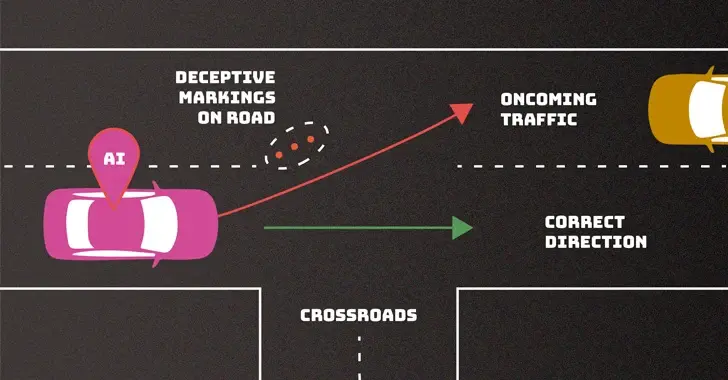- 11 Posts
- 53 Comments

 6·11 months ago
6·11 months agoDeeply discounted, yet with the satisfying conclusion that our external clients get! /s

 3·11 months ago
3·11 months ago2FAS, Bitwarden, Firefox are my most used FOSS on Android for me.

 6·11 months ago
6·11 months agoOh, the horror! I think I did the best I possibly could, given the circumstances.

 5·11 months ago
5·11 months agoI guess people will cheat and hide it everywhere.

 562·1 year ago
562·1 year agoWhile corporate America focuses on mainly profits, “fighting for human rights” are just empty slogan, because corporate America is already exploiting human misery for profits. For government, it’s going to be “to prevent China from becoming the dominant tech power in the developing world” that’s going to drive this sort of initiative, which most likely will have mixed results or fail miserably altogether. Chinese exports are already driving the non-elite consumer markets in the developing worlds.

 6·1 year ago
6·1 year agoWhen I forgot part of my my old password, I came up with a list of words that I possibly could have come up with and tried those. I eventually found it even if I was panicky the whole time. If I were you, I would list the words and try them in the order of probabilities.
Un/Fortunately, BW is implemented to rate-limit password brute-forcing. I feel you about your CAPTCHA hell, and I hate their surreal sunflower CAPTCHA (maybe to make it as repulsive as possible to the hackers?).

 13·1 year ago
13·1 year agoTrue.
-
Automatic patch => automatic installation of malware
-
Manual patch => unpatched vulnerabilities
Screwed either way.
-

 23·1 year ago
23·1 year agoYeah, this is definitely a problem with brand new services, especially when the native app isn’t appealing. For example, I use Liftoff for Lemmy. Open-sourced✅ In official Appstore✅ Relatively transparent who the developer is✅ No special permission starting off✅ Relatively few downloads📛 .
When a mobile app doesn’t ask for permissions, it’s definitely less nerve-racking than the more permissive desktop environments where the apps don’t have to be special to do considerable damages.

 22·1 year ago
22·1 year agoSpeaking about Windows PC.
- Not everybody thinks they need such security because it’s their home computer.
- Enabling device encryption necessitates the backup of the encryption key (and backup of the data files); otherwise, you may lose all the contents when things go wrong (like the key disappears after an update). People who don’t understand the tech may not know where their backup keys are.
- Windows Home encryption is a hassle since you don’t have finer-grain control over the encryption, unlike Bitlocker on Windows Pro. This is the lamest scheme for Windows. You only get practical basic security with Windows Pro.
- Enabling system drive encryption may make your system backup/recovery harder or impossible in some configurations. Figuring this out may require some technical expertise.
Apparently, Google has also taken to suck deez nuts.
Shoppers of Dell Australia’s website who were buying a computer would see an offer for a Dell display with a lower price next to a higher price with a strikethrough line. That suggested to shoppers that the price they’d pay for the monitor if they added it to their cart now would be lower than the monitor’s usual cost. But it turns out the strikethrough prices weren’t the typical costs. Sometimes, the lower price was actually higher than what Dell Australia typically charged.
Don’t believe in ads, folks. If prices are important for you, do you own research.
Whatever happens on the inside of a robotaxi is generally visible on the outside to bystanders and other motorists, The Standard notes of the AV’s “fishbowl-like” design.
“While [autonomous vehicles] will likely be monitored to deter passengers having sex or using drugs in them, and to prevent violence, such surveillance may be rapidly overcome, disabled or removed,” the study said. “Private [autonomous vehicles] may also be put to commercial use, as it is just a small leap to imagine Amsterdam’s Red Light District ‘on the move.’”
Convenient meetups, plus the additional benefits for certain fetishes.
But don’t worry, folks, we’ll take this opportunity to put even more surveillance tech in for you to keep you safe and meanwhile, perfectly maintain your privacy. 🤪

 5·1 year ago
5·1 year ago-
Canned fish. Nutritious (protein). Lots of energy (fat).
-
Bread. Don’t need to cook. Probably kept until it’s all eaten.
-
7-11 sells ready-to-eat food packs. They maybe willing to heat it for the persons if it’s a 7-11 rebranded packet.
-
Ramen noodle types. Assuming that they can get boiled water.
-

 1·1 year ago
1·1 year agoI still interact with one irreplaceable community. If there isn’t enough subscribed content on Lemmy, I do go back and look at my feed. Most of my interactions are here, though.

 6·1 year ago
6·1 year agoThose seem like questions for more research.
I bet it’s more pernicious because it is easy to incorporate AI suggestions. If you do your own research, you may have to think a bit if the references/search results may be bad, and you still have to put the info in your own words so that you don’t offend the copyright gods. With the AI help, well, the spellings are good, the sentences are perfectly formed, the information is plausible, it’s probably not a straight-forward copy, why not just accept?

 7·1 year ago
7·1 year agoI am being brainwashed by AI!
Here’s the paper: https://dl.acm.org/doi/10.1145/3544548.3581196
Abstract
If large language models like GPT-3 preferably produce a particular point of view, they may influence people’s opinions on an unknown scale. This study investigates whether a language-model-powered writing assistant that generates some opinions more often than others impacts what users write – and what they think. In an online experiment, we asked participants (N=1,506) to write a post discussing whether social media is good for society. Treatment group participants used a language-model-powered writing assistant configured to argue that social media is good or bad for society. Participants then completed a social media attitude survey, and independent judges (N=500) evaluated the opinions expressed in their writing. Using the opinionated language model affected the opinions expressed in participants’ writing and shifted their opinions in the subsequent attitude survey. We discuss the wider implications of our results and argue that the opinions built into AI language technologies need to be monitored and engineered more carefully.

 6·1 year ago
6·1 year agoOK. Then. I guess the summary would be like, the asteroid was more loose than we though, and we had no idea how the boulders got ejected from the surface because our impact.

 261·1 year ago
261·1 year agoSomehow, I found the lead scientist’s statement and the associated news to be click-baiting. Right, you crash something into a composite rock, and expect no ejecta from it. That’s pretty freaking believable. That’s like, the most basic physics you can expect from it. This is just to grab your attention so we can get more funding (which they may deserve, even if this is irritating), folks.











Probably got some parachute built in.